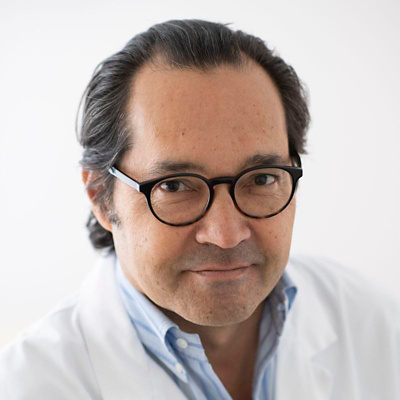Specialists in vascular surgery care for patients with arterial, venous and lymphatic diseases that require intervention.
Below are some examples of pathologies treated by specialists in vascular surgery.
Arteriosclerosis, degeneration of the arterial wall, can be caused by hypertension, smoking, diabetes or cholesterol. It is manifested by narrowing or obstruction of blood vessels. Treatment involves restoring blood flow so that oxygen and nutrients can be supplied to the organs. The vascular surgeon can create an infusion either by dilating the diseased segment or by reconstructing the arterial axis using a bypass. This "endovascular" technique aims to dilate the artery by means of a balloon introduced through the artery. A stent can then be inserted inside the vessel to keep it open. Post-operative pain and the risk of infections are thus reduced.
If it is not possible to proceed endovascularly, an arterial bypass operation is offered to the patient in order to create a new arterial circuit, so as to bypass the obstruction of the blocked artery. A bypass procedure is more "heavy" for the patient, however, the results are excellent in the long term.
The second common disease of the arteries comes from the dilation of the arteries. This is called an aneurysm that does not generate symptoms because blood flow is preserved. Nevertheless, this disease exposes the patient to the risk of rupture and hemorrhage. It therefore requires strict monitoring and sometimes surgery. Depending on the location and size of the aneurysm, the specialist recommends the placement of a "covered" stent or bypass surgery.
Specialists in vascular surgery also treat varicose veins through different techniques.




